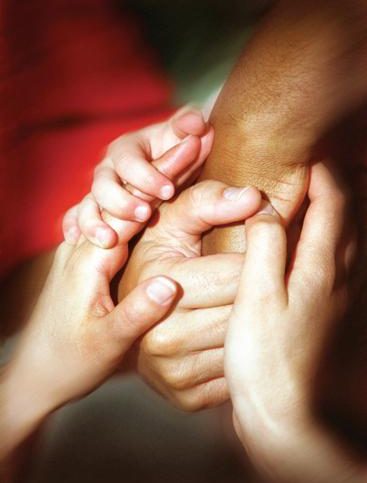by Abrar AlShammari
You’re obsessed with skin
You’re obsessed with blood
But you never think of the essence underneath
You’re obsessed with accents
You’re obsessed with tongues
But you never think of the words in between
The hegemonic nature of ‘Western culture’ and its particular prevalence today in Kuwait is undeniable. We wear Western clothes, study in private universities where the language of instruction is English, listen to American music, and celebrate non-Muslim holidays (New Year, Christmas, Halloween) even when we do not necessarily believe in their religious connotations. I write this in English. I read English books, albeit mostly written by non-Western writers. I speak English with a semi-‘American’ accent. It has unquestionably shaped a significant part of my identity, but my identity is one that has picked bits and pieces from every culture that I’ve come across.
This Western culture that I picked up from years of being at an American school is today as familiar to me as my Kuwaiti culture which I would once again take on once I left campus – I would ‘switch skins’ upon my arrival to my own bicultural home. I am bilingual, multi-cultural, easily adaptable. I grew up hearing different tongues, different accents, different religious beliefs and rituals around people of different colors, different styles of dress, different table (or floor, in the Bedouin case) manners, and different meanings of identity. It is because I took in this diversity with inquisitiveness that I have learned to appreciate the beauty in each identity; I am conscious of each culture’s ‘flaws’ – in terms of sexism, racism, class difference, and other forms of discrimination – but I am able to dig through the dirt, so to speak, in order to find a diamond or two. More often than not, this is a fairly easy process when you have the desire to find ‘diamonds’ (hospitality, mercy, legends, superb story-telling skills, delicious food).
I’m equally aware that the conditions I grew up in can be considered exceptional, or even privileged. It is coincidental that I was born to parents of different backgrounds, but it was planned for me to mingle with so many backgrounds through my education. It was a conscious choice to reach out to a larger segment of Kuwaiti society; one that extended beyond the elite minority that my classmates were a part of. Truth be told, I explored other identities in search of my own. But, I saw patterns – and most of them were not diverse.
To say that ‘Kuwaitis stick with Kuwaitis’ would be inaccurate. Most seemed to prefer those of similar ‘descent’ as their own. The same goes for non-Kuwaitis, they also seemed to prefer their ‘own kind’. My transition to university exposed me to a much wider spectrum of people – students who would drive from Jahra to attend a one-hour lecture, married women with children, mothers in the same class as their daughters, and the ones I was familiar with: the diplomats’ sons and daughters, the lavish children of businessmen, surgeons, and MPs, and the generally comfortably-living.
Group-identity was not one solely based on ‘loving’ each other – it also meant hating ‘The Other’. Mock, taunt, and ostracize those who did not wear clothes as expensive as theirs, who did not uphold the same ‘reputation’ – of ‘purity’, in the girls’ case, and ‘manhood’, in the guys’ case – as their own and who did not speak with the same accents that their tongues did. Ears are extra attentive to the telltale “J” rather than “Y” (do you say “Ana jay” or “Ana yay”?) which is supposed to allude to whether you fall into Bdewi or Htheri; how fluently English rolls off your tongue is another giveaway. Eyes scrutinize the labels on your blouse, your bag, your glasses, your car keys. Is your hair color and texture natural? What foundation do you use? What do you mean, both your hair and your skin are untouched?
Last names, accents – whether Bedouin/Htheri or broken/fluent English – clothes, cars, residence area, hairstyle, and other factors that compose your superficial self – your limited, exterior self which is only skin deep – often end up blocking the path to the beauty that resides behind those aesthetic visuals. The Bedouin whose accent you’ve labeled ‘heavy’ will show you memorable hospitality if you were to give him a chance, and will use his superb story-telling skills to share a wealth of deep-rooted legends with you. The government-school graduate whose English is broken has exceptional skills in math, and is kind enough to tutor you if you’d smile at him rather than laugh at him. The girl who never wears heels and always wears hoodies is not unfeminine, and if you would look past notions of gender expectations you would learn that she has a great capacity for empathy.
All that is superficial is one of two: God-given, or bought. Neither of the two is earned, nor does anyone have any control over what pre-determined fortune is given to them. Each individual does, however, have full control over what kind of human being they choose to be, and how much focus they decide to direct toward all that is beneath their skin. What is aesthetic is fleeting, what is personally orchestrated is long lasting. Apply this to yourself first and foremost, and encompass those surrounding you in this principle.
The state of Kuwait is turning fifty-three years old this February. I write this with the hope that as the state grows older, our community grows more embracing and more appreciative of the differences that make up Kuwait.











